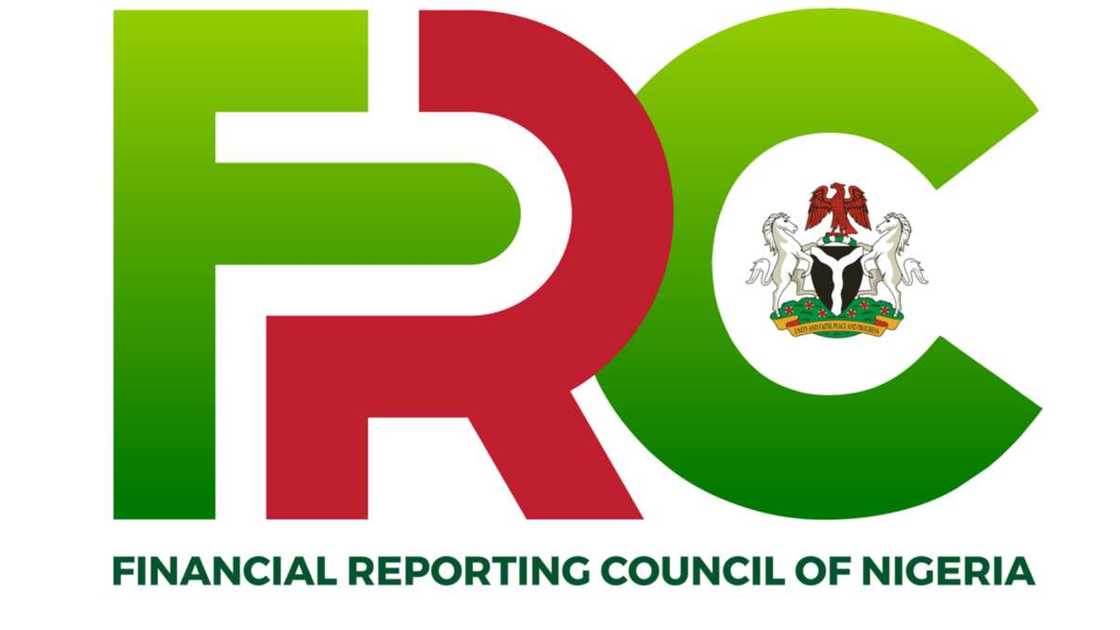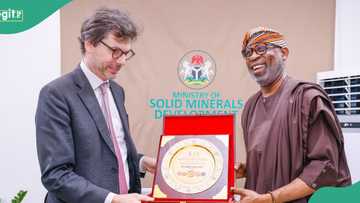What are the functions of the Financial Reporting Council of Nigeria?
Did you know that the Financial Reporting Council of Nigeria (FRC) was formerly known as the Nigerian Accounting Standards Board (NASB)? The body is required to set accounting standards in the country. There are multiple functions of the Financial Reporting Council of Nigeria for you to discover today.

Source: UGC
On 18th May 2011, the Senate passed the Financial Reporting Council of Nigeria Bill that led to the formation of the FRC. Discover the functions of the Financial Reporting Council of Nigeria today.
Functions of the Financial Reporting Council of Nigeria
The FRC is a federal government agency established by the Financial Reporting Council of Nigeria Act, No. 6, 2011. The Federal Ministry of Industry, Trade, and Investment supervises it. Learn more about the agency and its mandate today.
History of the Financial Reporting Council of Nigeria
The Nigerian Accounting Standards Board (NASB) was established in 1982. It was a private sector initiative closely associated with the Institute of Chartered Accountants of Nigeria (ICAN).
NASB became a government agency in 1992. It set accounting standards using a legal framework provided by the Nigerian Accounting Standards Board Act of 2003.
NASB developed, published, and updated the Statements of Accounting Standards followed by companies when preparing their financial statements. It also promoted and enforced compliance with the standards.
On 18th May 2011, the FRC repealed NASB and replaced it with a new set of rules. The Financial Reporting Council Bill was signed into law on 20th July 2011.
Today, the FRC is an independent regulatory body dealing with accounting, corporate governance, actuarial, auditing, and valuation.
Mission
The mission of the FRC is "To bring utmost confidence to investors, reputation to oversight, and ensure quality in accounting, auditing, actuarial, valuation and corporate governance standards and non-financial reporting issues."
Vision
The vision of the FRC is "To be the conscience of regulatory assurance in financial reporting and corporate governance in Nigeria."
Values
The roles and powers of the Financial Reporting Council of Nigeria are guided by the agency's core values, as listed below.
- Accountability
- Fairness
- Integrity
- Transparency
Composition of the Financial Reporting Council of Nigeria
The FRC is run by a management team. It also has a board of members who aid with the daily running of the agency.
Management team
The current management team of the FRC is shown below.
| Position | Name |
| Executive Secretary/ Chief Executive Officer | S. A. Ahmed |
| Director, Directorate of Accounting Standards – Public Sector | I. O. Anyahara |
| Director, Directorate of Corporate Governance | T. E. Osawe |
| Deputy Director, Directorate of Accounting Standards – Private Sector | V. O. Okhiria |
| Deputy Director, Human Capital & Administration | E. E. Okoli |
| Deputy Director, Directorate of Auditing Practices Standards | A. B. Amoo |
| Deputy Director, Board Secretary & General Counsel | E. D. Nnoruka |
| Deputy Director (Policy, Planning, Research and Statistics) | F. C. Azubuike |
Board members
The board is made of representatives from the organisations and agencies listed below.
- Association of National Accountants of Nigeria
- Central Bank of Nigeria
- Chartered Institute of Stockbrokers
- Chartered Institute of Taxation of Nigeria
- Corporate Affairs Commission
- Federal Inland Revenue Service
- Federal Ministry of Industry, Trade and Investment
- Federal Ministry of Finance
- Institute of Chartered Accountants of Nigeria
- National Insurance Commission
- National Pension Commission
- Nigerian Accounting Association
- Nigerian Association of Chambers of Commerce, Industries, Mines and Agriculture
- Nigerian Deposit Insurance Corporation
- Nigerian Institution of Estate Surveyors and Valuers
- Nigerian Stock Exchange
- Office of the Accountant General of the Federation
- Office of the Auditor General for the Federation
- Securities and Exchange Commission

Source: UGC
Roles and objectives of the Financial Reporting Council of Nigeria
The primary role of the Financial Reporting Council of Nigeria is to set accounting standards in the country. Its main objectives, as defined in the FRC Act, are listed below.
- To enhance the credibility of financial reporting in the country.
- To ascertain the accuracy and reliability of financial reports and corporate disclosures according to the laws and regulations of the country.
- To harmonise all activities of the relevant professional and regulatory bodies related to corporate governance and financial reporting.
- To protect local and international investors' and other stakeholders’ interests.
- To improve the quality of accountancy and audit services, corporate governance standards, actuarial, and valuation.
- To ensure good corporate governance practices in the public and private sectors of the country's economy.
- To promote high standards among auditors and other professionals engaged in the financial reporting process.
- To provide guidance on issues related to financial reporting and corporate governance to other institutional, professional, and regulatory bodies in the country.
Directorates
The FRC has multiple directorates to help the agency to achieve its objectives and roles.
- Directorate of Corporate Governance
- Directorate of Inspection and Monitoring
- Directorate of Valuation Standards
- Directorate of Actuarial Standards
- Directorate of Auditing Practices Standards
- Directorate of Accounting Standards - Public Sector
- Directorate of Accounting Standards - Private Sector

Source: UGC
Contacts
If you need to learn more about the FRC or make an enquiry, use the contact details below.
- Physical address: 4th and 5th Floors, Alexander House, Plot 8, Otunba Jobi Fele Way (By Japaul House), Central Business District, Alausa, Ikeja, Lagos.
- Email address: enquiries@frcnigeria.gov.ng
- Telephone numbers: +234 908 899 9800/ +234 908 899 9789/ +234 908 899 9802
- Abuja Liaison Office: No. 3 Aguleri Street, Area 11, (Close to Top Rank Hotel), Garki, Abuja
What is the role of the Financial Reporting Council of Nigeria?
The main role of the FRC is to set accounting standards in the country. It has a management team and board to ensure all objectives are met.
What are the functions of the FRCN?
The functions of the FRC include enhancing the credibility of financial reporting in the country, protecting local and international investors' and other stakeholders’ interests, and ensuring good corporate governance practices in the public and private sectors of the country's economy.
What are the functions of the Financial Reporting Council?
The FRC has multiple functions and objectives, including providing guidance on issues related to financial reporting and corporate governance to other institutional, professional, and regulatory bodies in the country and protecting local and international investors' and other stakeholders’ interests.
There are multiple objectives and functions of the Financial Reporting Council of Nigeria. The agency is in charge of setting accounting standards in the country.
Legit.ng recently published information about citizenship education in Nigeria. Citizenship education contributes to the participation of citizens in democratic and development processes.
Citizen participation is based on the defence of individual and collective rights. It ensures the realisation of the obligations of each citizen.
Source: Legit.ng

Cyprine Apindi (Lifestyle writer) Cyprine Apindi is a content creator and educator with over six years of experience. She holds a Diploma in Mass Communication and a Bachelor’s degree in Nutrition and Dietetics from Kenyatta University. Cyprine joined Briefly.co.za in mid-2021, covering multiple topics, including finance, entertainment, sports, and lifestyle. In 2023, she finished the AFP course on Digital Investigation Techniques. She received the 2023 Writer of the Year Award. In 2024, she completed the Google News Initiative course. Email: cyprineapindi@gmail.com

Adrianna Simwa (Lifestyle writer) Adrianna Simwa is a content writer at Legit.ng where she has worked since mid-2022. She has written for many periodicals on a variety of subjects, including news, celebrities, and lifestyle, for more than three years. She has worked for The Hoth, The Standard Group and Triple P Media. Adrianna graduated from Nairobi University with a Bachelor of Fine Arts (BFA) in 2020. In 2023, Simwa finished the AFP course on Digital Investigation Techniques. You can reach her through her email: adriannasimwa@gmail.com







